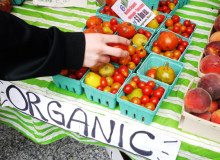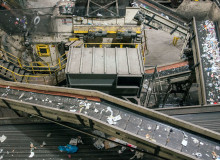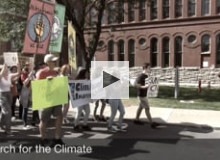storyfest2020
SUNY College of Environmental Science and Forestry
Food for Thought is a podcast discussing the food that ends up at your table, and in this episode we talk about the potential solution of mobile farmer's markets for the issue of food deserts.
SUNY Environmental Science and Forestry
This story examines the social and ecological problem of having honeybees in the U.S.
SUNY College of Environmental Science and Forestry
Dumpster diving is an alternative solution to wasting food.
SUNY ESF
Ocean acidification is a huge threat to our oceans. Ocean acidification is an affect of climate change and the increased emissions of greenhouse gases. Carbon dioxide is absorbed in our oceans, but the oceans cannot hold everything. Too much can... Read More
SUNY ESF
insight into the annual phenomena of smog from the perspective of an environmental studies student.
SUNY ESF
My story concerns the expansion of the built environment and its possible effects on public health and socio-spatial inequality
Planet Forward Senior Correspondent
I let my mind wander down the endless paths of what-ifs and worst-case scenarios. What I’ve realized is that all this worrying is doing far more harm than what I could be doing if I was doing anything but worrying.
The George Washington University
Here's some key information about the recent straw war, which was sparked by Trump's anti-environment campaign merchandise.

Is organic always better than conventional produce? Here are five organic food myths debunked. (Creative Commons Public Domain)
The George Washington University
Organic food assumptions, fueled by marketing, are that organic cherries are more nutritious, safer, and healthier for me since organic farming is better for the environment. Is this the truth?

Recycling flows through Waste Management's CID Recycling & Disposal operation on Chicago's far southeast side in this 2015 image. (Chris Bentley/Creative Commons)
SUNY College at Brockport
Recycling used to be thought of as the answer to our waste problems. But rising recycling issues mean the U.S. has to change its strategies toward waste, reports a new survey from the U.S. Public Interest Research Group.




